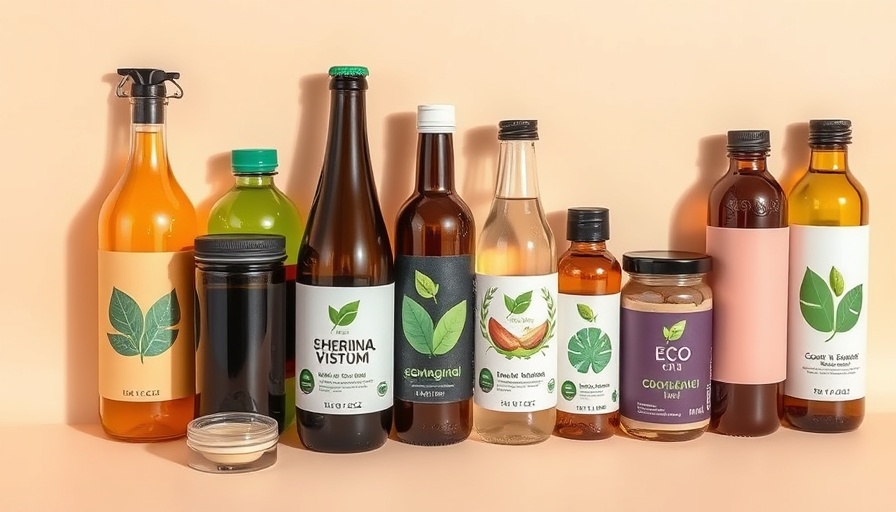
How Labels Impact Plastic Recycling
Plastic labels, often considered insignificant components of packaging, play a colossal role in the recycling process. Even though they seem harmless, these labels can hinder effective recycling, leading to increased waste.
The Complexity of Recycling Challenges
As the threat of plastic pollution rises, many companies found themselves at a crossroads. Despite ambitious sustainability goals set in collaboration with organizations like the Ellen MacArthur Foundation, progress remains slow, partly due to the overwhelming complexity of packaging materials. Labels made of mixed materials—often non-recyclable themselves—complicate the recycling process.
Innovations on the Horizon: Pressure-Sensitive Labels
Avery Dennison, a materials science company, is championing an innovative solution: pressure-sensitive labels. These labels not only mimic traditional designs but can also detach from packaging easily during recycling, reducing contamination risk. They represent a potential milestone in the effort to seek 100% recyclability, particularly in consumer packaging.
Understanding the Critical Role of Design in Sustainability
This approach advocates for a simpler design in sustainable packaging by integrating reusable components while actively seeking ways to minimize waste. For instance, sustainable hotels can establish partnerships with environmentally conscious suppliers to prioritize packaging that aligns with eco-friendly principles.
A Look Ahead: The Future of Sustainable Packaging
Looking to the future, it's crucial for both brands and consumers to hold packaging to higher sustainability standards. As small-scale hotel owners, it’s vital to champion sustainable practices that resonate with eco-conscious travelers. The shift towards more sustainable options in hospitality will not only attract customers but potentially reduce operational costs, especially as more brands adopt eco-friendly initiatives. Exploring innovative options like biodegradable materials or solar-powered solutions in product offerings can also contribute to sustainability goals.
Community Engagement: Transforming Hospitality for Sustainability
Beyond individual choices, creating community-driven initiatives amplifies the impact. For instance, implementing local urban farming or organizing shared practices around waste minimization fosters a collective spirit. This integration of community efforts leads towards building a sustainable hospitality ecosystem that shares resources and ideas, optimizing waste management further.
Encapsulating Values That Resonate with Eco-Conscious Consumers
Understanding food and packaging waste also means addressing customers' values. The hospitality industry can lead by example, opting for businesses that emphasize sustainability. Opportunities abound for hotels and guesthouses to create a genuine connection with their environmental efforts through sustainable practices, whether via paper wrappers or inviting guests to partake in these initiatives through workshops, farm visits, and more.
Every small step counts, and every choice towards sustainability doesn’t just benefit the environment but also becomes a story that resonates with guests. The aim is to create a pleasant stay filled with sustainability values, ensuring travelers leave with more than just memories. They leave inspired to continue their eco-friendly practices.
 Add Row
Add Row  Add
Add 




Write A Comment